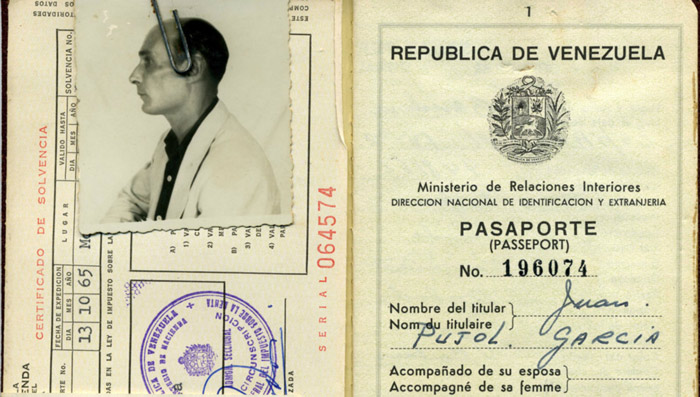Acting as a double agent can be a dirty, confusing game of keeping one’s stories straight. But in a time of war, it can be a necessary gig that top spies hold proudly. Where they’re playing two sides of the system for one common goal. In other words, it’s a spy who works for two countries, but only holds loyalties to one.
This is exactly what Spanish spy, Juan Pujol García, did during World War II. Only with a twist. Garcia tried to work for the British, but his job queries were rejected. Therefore, he took matters into his own hands and worked from afar. He first got the idea to work from afar after seeing political extremism during the Spanish Civil War. Wanting to offer something “for the good of humanity,” he began looking into career options as a spy.
Here is the story of the spy who led Germans on a wild goose chase during WWII

In whole, the story is more of an embarrassment on the Germans’ part, failing to fact check. However, it also offers a unique and rare piece of history.
After he was turned down by the Brits, Garcia took a new approach. He got a job with Hitler’s soldiers and flubbed his information. To fulfill his orders, he made up data, even entire movements, and sent it back to the Germans.
How he got the gig — false reports
Pujol created a false version of himself as both a member of the British government and a closet Hitler supporter. He was also able to obtain a false passport. The combo did the trick and Germany quickly hired him as a spy. His first orders were to travel to Britain and “flip” fellow spies to join the movement. Instead, Pujol moved to Lisbon, Portugal and began sending up completely falsified reports. He pulled “data” and said he gathered from tourist guides, train schedules, movie shorts, and print ads.
Notably, the information was filled with social faux pas and blatant mistakes, as Pujol didn’t know much about British culture. Most notably, he reported that Scottish were avid wine drinkers. In fact, Scotland is known for its whiskey and, at the time, served little wine. He also made mention of a liter/litre, unknowing that the U.K. did not operate on the metric system.
However, his superiors failed to check his information and put full trust into his word.
Soon into his gig, Garcia began adding subordinates to his operation. This helped his case in two ways — 1) he could blame the fictional employees of false information and 2) to appear as if his efforts were growing with more spies under his wing.

For perhaps his biggest win for the Brits, Pujol invented an entire convoy. He told the Germans about the Brothers of the Aryan World Order, a Welsh fascist movement. To counter a “planned attack,” Hitler sent a large defense system against this fake event.
The event caused Britain to finally accept Pujol on their side. He was then moved to Britain and offered a job with M15. He and his boss continued to expand the fake network of spies throughout the war.
At its largest point, the Germans were paying 27 fake spies brought on by Pujol, who operated under the codename Garbo.
Lasting effects of WWII
Pujol is perhaps the only participant of WWII to receive honors from both sides. He was awarded an Iron Cross from the Germans, which required authorization from Hitler himself. He also became a member of the Order of the British Empire, with King George VI doing the honors.
Overall, he’s cited with helping win Operation Fortitude in deceiving Hitler’s forces when Allies were landing at Normandy. His efforts convinced them that the main attack would be at an alternate location and time.
After the war
Fearing retribution from Hitler, Pujol, with the help of M15, moved to Angola to fake his death of malaria. He then moved to Venezuela where he ran a bookshop.
In the 1970s and 80s, he was heavily researched by war thriller writer, Nigel West. After 12 years of hunting for Garbo’s real name, the two met up and collaborated on a book. In 1987 the pair released Operation Garbo: The Personal Story of the Most Successful Spy of World War II.
























